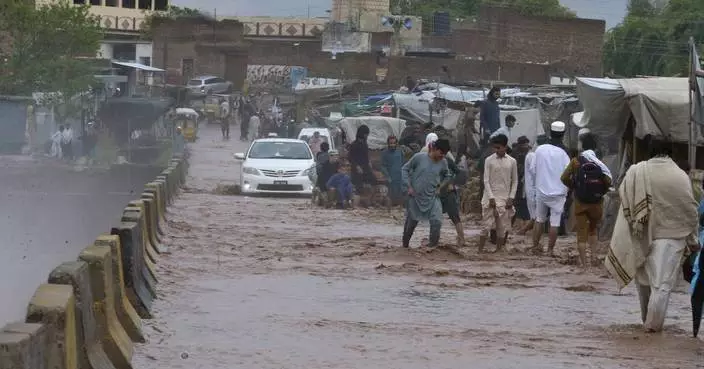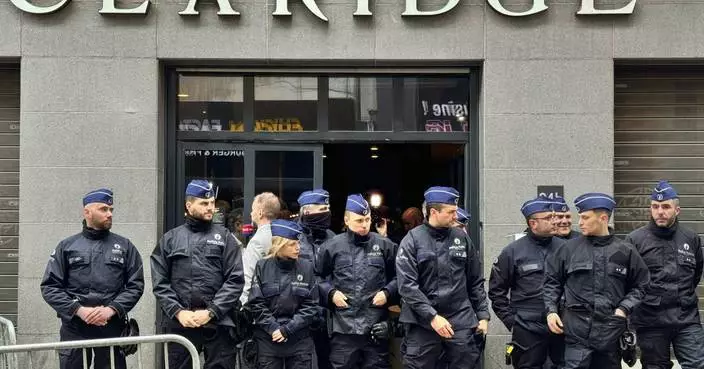The leaders of Hungary and Germany sought to strike a conciliatory note Monday, largely setting aside the frostier tones that have dominated their recent relations as they commemorated the 30th anniversary of a key moment in Cold War history.
Speaking at a ceremony recalling the "Pan-European Picnic" — an event on the border of Austria and Hungary considered to have helped lead to the fall of the Berlin Wall — Hungarian Prime Minister Viktor Orban and German Chancellor Angela Merkel stressed their countries' shared history and common European values.
Orban, one of the fiercest critics of Merkel's welcoming stance toward asylum-seekers during the 2015-2016 migrant influx, voiced fulsome appreciation for the German chancellor, whose country has close economic ties with Hungary.
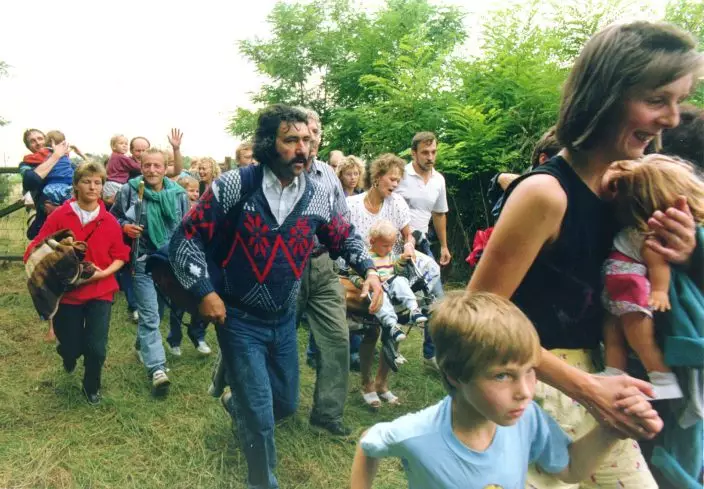
File---Picture taken Aug.19, 1989 shows East Germans surprise Hungarian border guards and rush through a gate into Moerbisch, Austria. The gate was opened as part of joint Austrian-Hungarian event, marking the end of the Iron Curtain. The East Germans had heard of the event and used it for their flight to the West. (AP-Photovotava)
Merkel responded by expressing her country's appreciation for the fact that on Aug. 19, 1989, Hungarian border guards allowed some 700 refugees from East Germany to cross the border into the West, thereby putting further pressure on the Communist regime in East Berlin to let its citizens emigrate.
"We Germans recall with great gratitude Hungary's contribution to overcoming the division of Europe and also Hungary's contribution to achieving German reunification," Merkel said during a church service in the western Hungarian town of Sopron.
Alluding to the split within the European Union over migrants, Merkel said it was "sometimes necessary to jump over one's own shadow in order to do justice to our joint responsibility for Europe and the world."
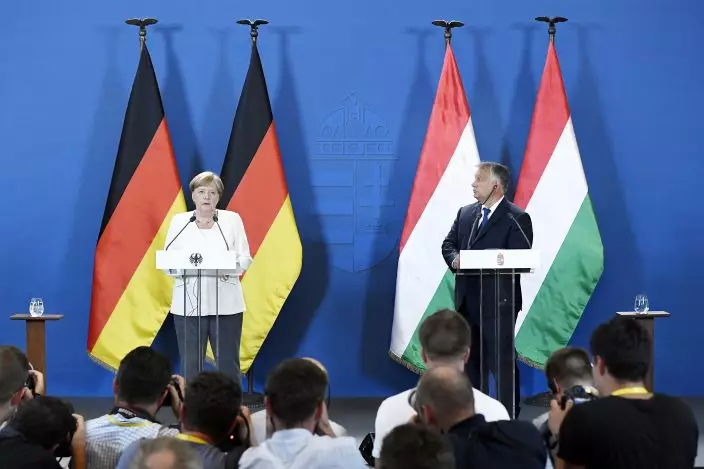
German Chancellor Angela Merkel, left, and Hungarian Prime Minister Viktor Orban during their joint press conference on the occasion of the 30th anniversary of the pan-European picnic in Sopron, Hungary, Monday, Aug. 19, 2019. (Szilard KoszticsakMTI via AP)
Pressed on the issue at a news conference, Merkel said the new head of the European Union's executive Commission, Ursula von der Leyen, was aiming for a "new start, a new beginning to see how we are able to come to common terms" on the migration issue.
Asked about his country's decision to erect hundreds of miles of fences along its southern borders to prevent migrants reaching the EU when it had been Hungary that helped tear down the Iron Curtain 30 years ago, Orban said that "these two kinds of behaviors are completely compatible with one another."
"We believe that we are the fortress captains of the Germans when we are protecting the external borders of Europe, which are also at the same time Germany's external borders," he said.
"We are doing this at our own cost. They could be sending us more contributions, ammunition but it seems that border protection is our obligation and we will continue to perform this."
WARSAW, Poland (AP) — Polish Prime Minister Donald Tusk expressed satisfaction on Monday after a series of candidates supported by his party won weekend races for mayor.
Candidates from his pro-European Union centrist Civic Coalition, or running with the party's backing, won in a series of cities in the second round of local elections held on Sunday, among them Krakow, Poznan, Wroclaw and Rzeszow.
“It is very difficult to clearly say who won and who lost,” Tusk said Monday. “But if we compare these results, especially in the most attractive places, on these attractive battlefields ... then I actually have reasons for satisfaction.”
“Law and Justice has simply disappeared in many places,” Tusk added at a news conference, referring to the main opposition party.
The results put Civic Coalition in a favorable position as the country looks next to elections to the European Parliament on June 9.
Mayors were chosen in a total of 748 cities and towns where no single candidate won at least 50% of the vote during the first round on April 7.
Candidates for Tusk’s party also recaptured cities where they had not held power for many years, including Zielona Gora, Legnica and Torun.
The local and regional elections were viewed as a test for Tusk's pro-European Union government four months after it took power at the national level. Sunday's second round strengthened the Tusk government's leverage in the cities, which should facilitate cooperation on development projects and allotment of EU funds.
Tusk's allies also won in some places in the first round two weeks ago, including in Warsaw, where incumbent Mayor Rafal Trzaskowski was an easy victor.
In the first round, the right-wing Law and Justice, prevailed on the level of regional assemblies in the country's 16 provinces, where it took 34.3% of the votes, while Tusk's Civic Coalition got 30.6%. Law and Justice governed on the national level from 2015-23.
Tusk’s socially liberal Civic Coalition traditionally has strong support in cities, while Law and Justice has a more solid base in conservative rural areas, particularly in eastern Poland.
Civic Coalition is the largest group in a three-party coalition that governs the EU nation of 38 million people. The coalition is pro-European Union but otherwise spans a wide ideological spectrum with left-wing politicians in the Left party as well as conservatives in the Third Way.
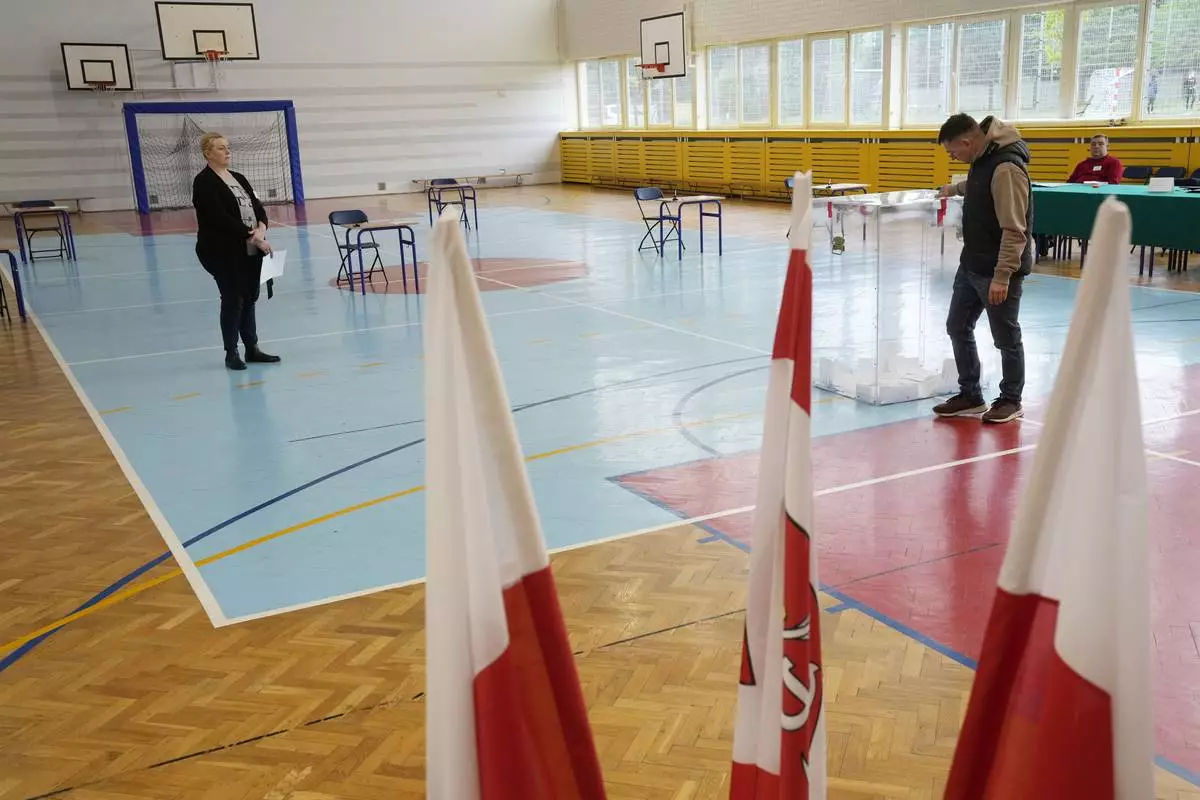
Polish voters take part in a local runoff election in Lomianki, near Warsaw, Poland on Sunday, April 21, 2024. Voters are choosing mayors who did not win outright in the first round of the election two weeks earlier. (AP Photo/Czarek Sokolowski)
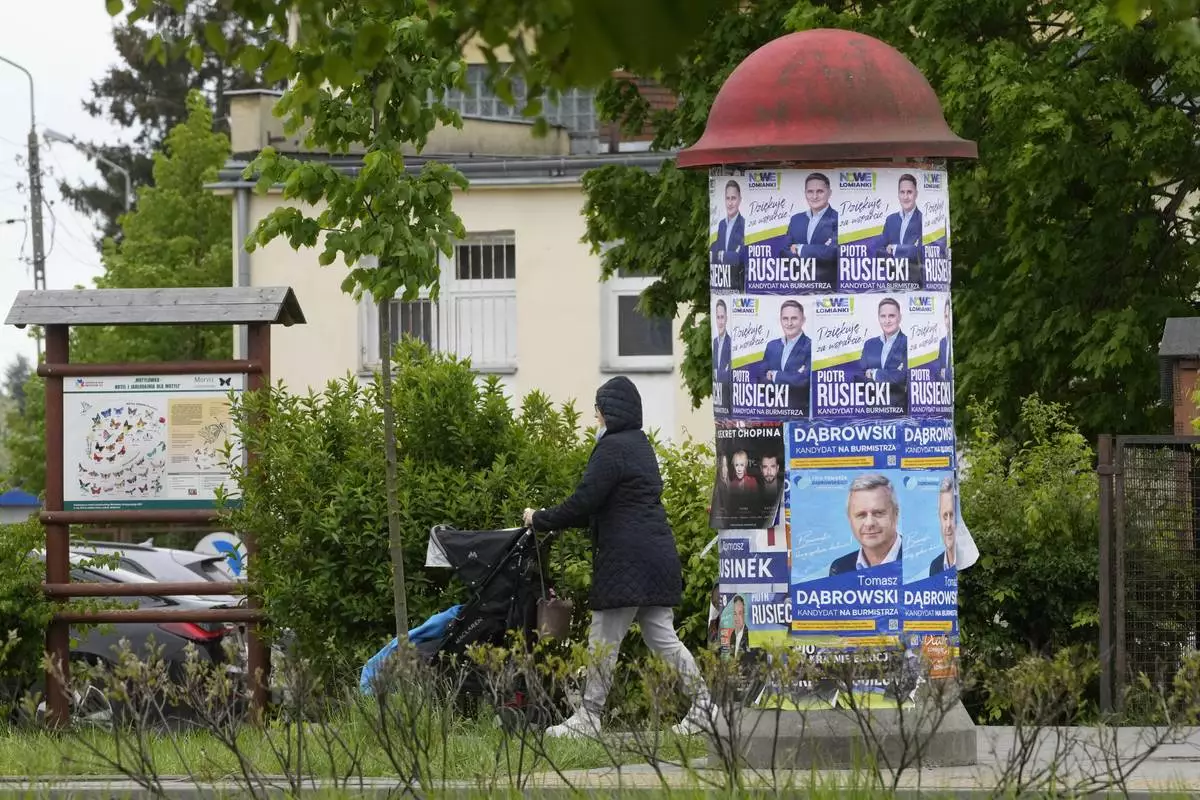
Campaign posters promote candidates as Poles vote in local and regional elections in Lomianki, near Warsaw, Poland on Sunday, April 21, 2024. Voters are choosing mayors who did not win outright in the first round of the election two weeks earlier. (AP Photo/Czarek Sokolowski)
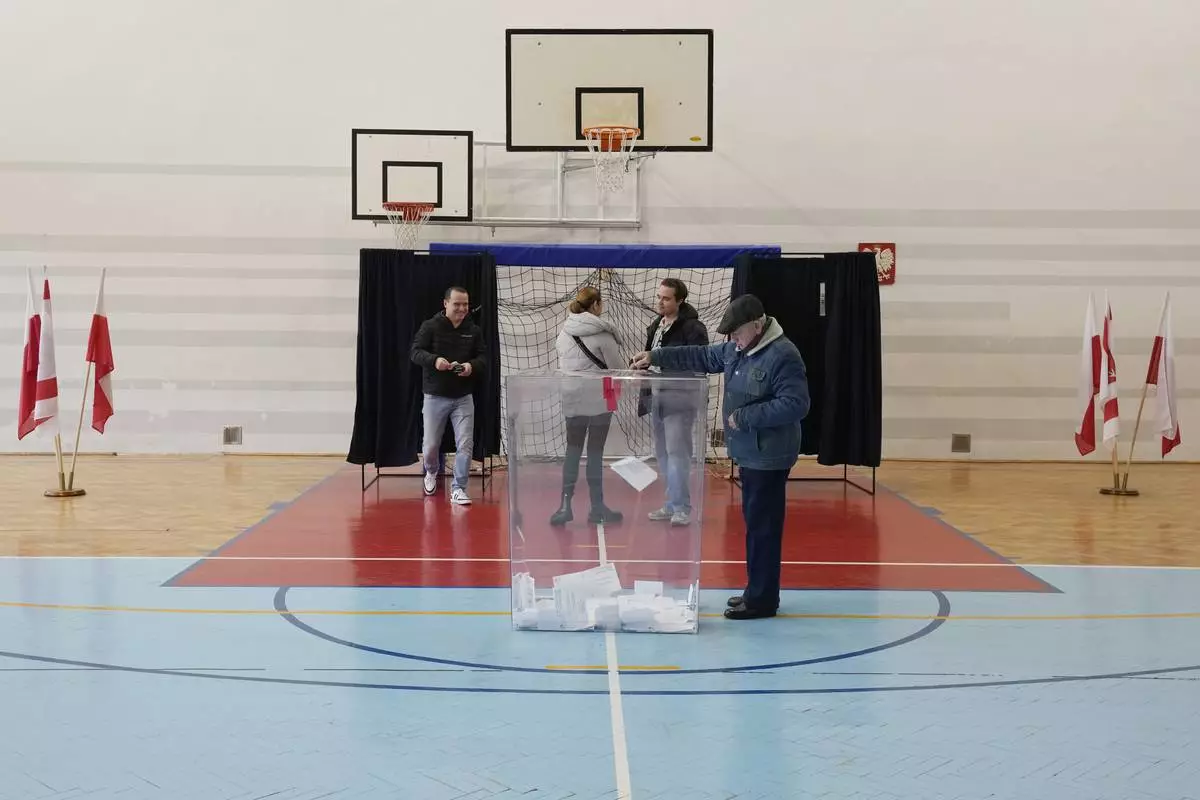
Polish voters take part in a local runoff election in Lomianki, near Warsaw, Poland on Sunday, April 21, 2024. Voters are choosing mayors who did not win outright in the first round of the election two weeks earlier. (AP Photo/Czarek Sokolowski)
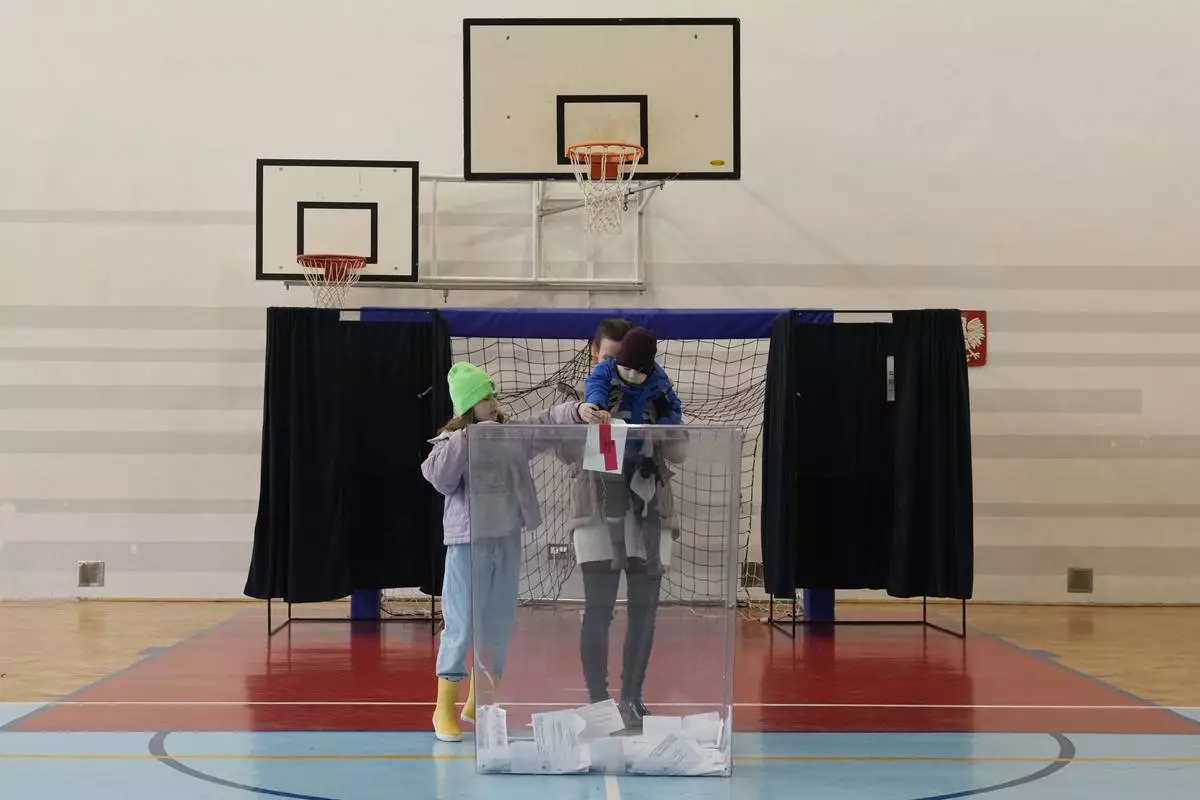
Polish voters take part in a local runoff election in Lomianki, near Warsaw, Poland on Sunday, April 21, 2024. Voters are choosing mayors who did not win outright in the first round of the election two weeks earlier. (AP Photo/Czarek Sokolowski)
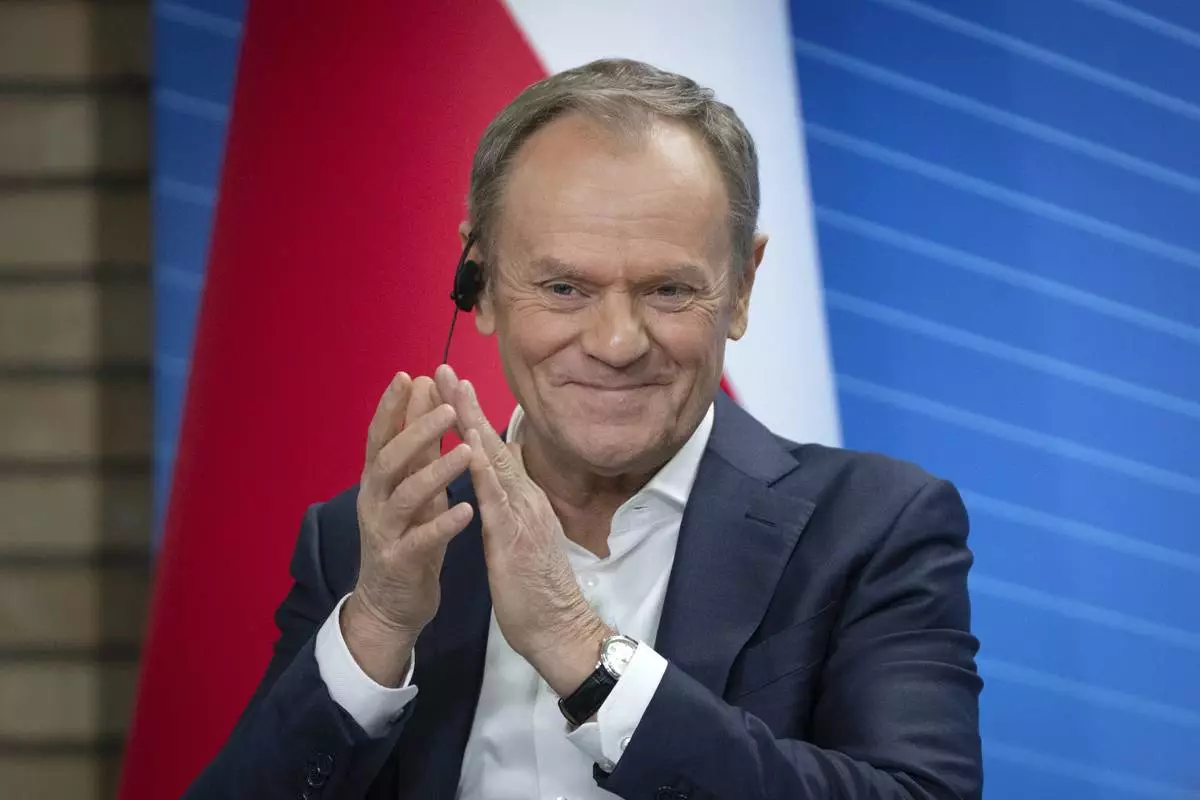
FILE - Poland's Prime Minister Donald Tusk reacts during his and Ukrainian President Volodymyr Zelenskyy meeting with students in Kyiv, Ukraine, Monday, Jan. 22, 2024. Poland's Prime Minister Donald Tusk is celebrating a victory on Monday April 22, 2024 after a series of candidates supported by his party won weekend races for mayor. (AP Photo/Efrem Lukatsky, File)
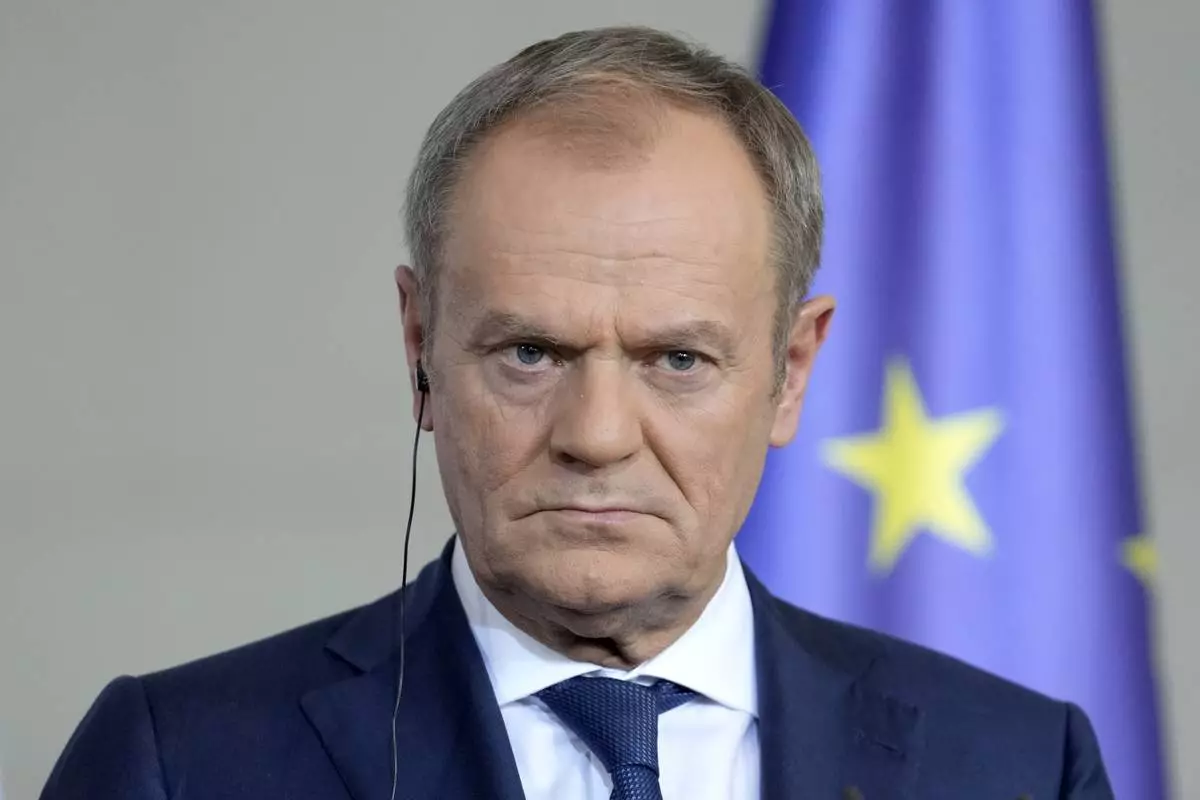
FILE - Poland's Prime Minister Donald Tusk listens to the media in Berlin, Germany, Friday, March 15, 2024. Tusk is celebrating a victory on Monday April 22, 2024 after a series of candidates supported by his party won weekend races for mayor. (AP Photo/Ebrahim Noroozi, File)
















